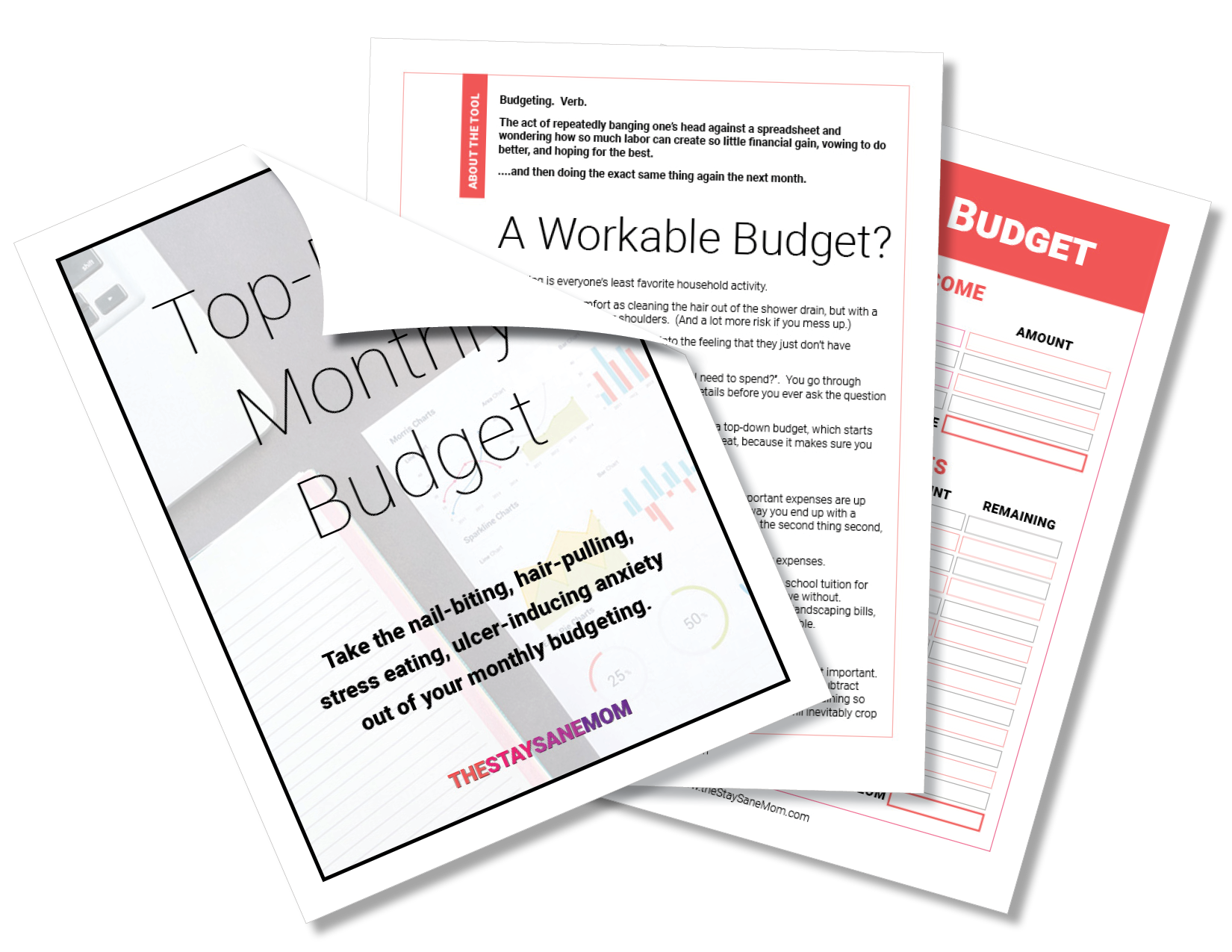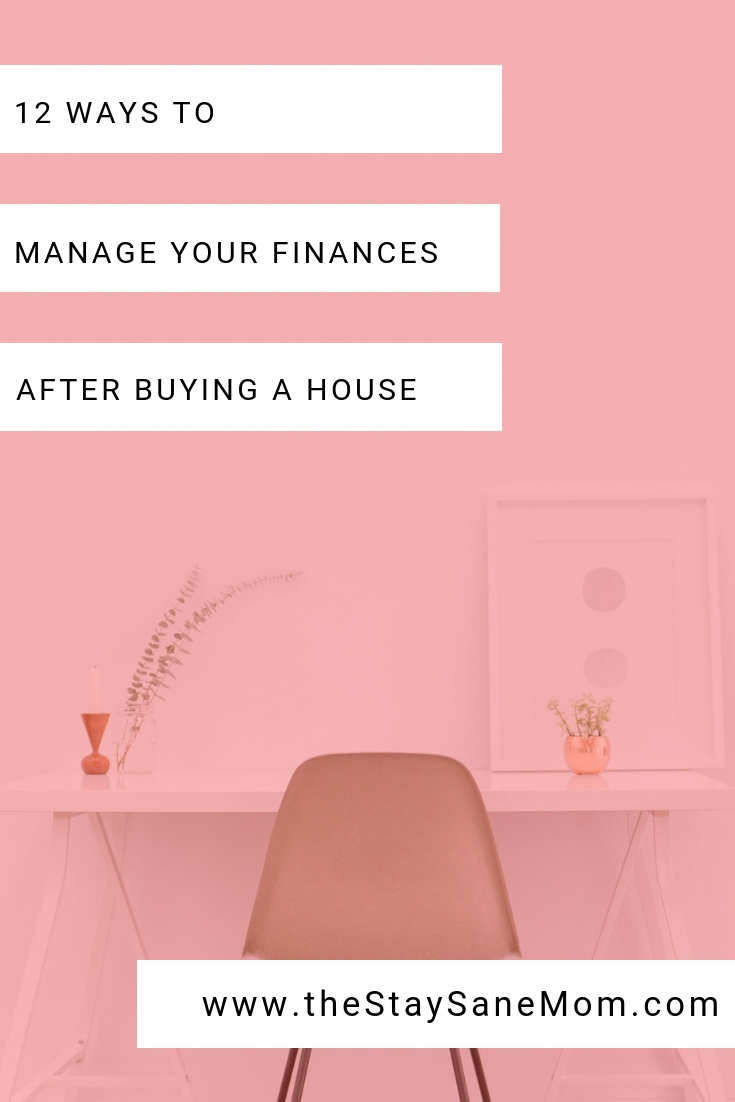12 Ways To Manage Your Finances After Buying A House

12 Ways To Manage Your Finances After Buying A House
After buying a house, your financial responsibilities change. Get a handle on your money with these 12 ways to manage your finances after buying a house.
Written by Liz Bayardelle, PhD | See Comments | Updated 05/22/2019
Want to cut to the chase?
Failproof Monthly Budget

12 Ways To Manage Your Finances After Buying A House
This post contains some affiliate links for your convenience. Click here to read my full disclosure policy.
Buying a house is a big financial commitment.
Finally, you’re on the property ladder and can look forward to owning an investment that could one day help you in retirement, or provide a future for your children.
After buying a house, your financial responsibilities change. You not only need to deal with new types of bills and outgoings, but you also need to protect your home’s future value by investing in it and maintaining it. This will require you to change your approach to your finances and make sure you stay on top of things.
Get a handle on your money with these 12 ways to manage your finances after buying a house.
1. Save More than You Think You Need
When you buy a house, there’s a deposit to pay for, as well as legal fees and other costs. You never know what other costs you might have to pay at the beginning, but you can be pretty sure it’ll be more than you think it’s going to be.
Always save a bit more than what you think you need.
There’s always one more thing to fix, one unexpected addition, that last Target run...
Try to set aside a budget for making immediate improvements and repairs that can help you deal with any problems when you move in and start making your home your own.
2. Sell Your Unwanted Stuff
Having a good decluttering session is a great way to make your move easier and make sure that you don’t move into your new home with a load of items you don’t need.
This also gives you the perfect excuse to sell your unwanted stuff and make a bit of money too! If you’re wondering where you can sell your stuff for the most cash, take a look at websites like eBay and Craigslist to do some research around what similar items have sold for.
With all that clutter gone, you’ll be able to focus on filling your home with things you need and like instead.
3. Try Furnishing Your Home on a Budget
Furnishing a new home can be expensive. If you’ve moved from a small property to a larger one, you could soon find yourself faced with many empty rooms that need filling, but without the budget to do it.
The good news is that it is possible to furnish your home on a budget. You could try getting thrifty and checking out some local flea markets and garage sales hit up Facebook marketplace or even upscale cheaper items of furniture.
Don’t forget that stores like IKEA sell some incredible furniture at a low price, and shopping online can also lead you to some excellent bargains too.
Finally, don’t be afraid of empty space!
If you’re tempted to put something somewhere just to fill space, it probably doesn’t “want” to live there anyway and you’ll just end up with more clutter. An empty cabinet, an underfurnished room….whatever it is won’t hurt you! Don’t be afraid to leave things blank until you figure out what you actually want there.
4. Figure Out Your Expected Expenses
Until your bills start coming through, it can be difficult to work out what your outgoing expenses are going to be.
You can research monthly fees for homeowners to give you an idea of things like your energy and water bills, as well as other costs you might not have thought about. Make some estimations and then correct them as they come through. Working out your expenses is a great way to help you manage your money in the first few months and will stop you from overspending and then struggling to pay those first bills.
5. Start a Budget
Every household should have a budget to help make sure all outgoings can be met, as well as being able to put money aside and to have some money left over for entertainment, buying clothes, etc. Starting a budget for the first time is easier than it sounds, and with budgeters being less likely to report financial problems than non-budgeters, this will help you get off to a great start in your new home.
Your budget can be changed over time to reflect changes in your circumstances, such as a pay increase or being on maternity leave, allowing you to adjust accordingly.
Many people confuse budgeting with cutting back, but what it actually does is help you manage your finances in a more structured way to stop you running out of money before your next paycheck. If you don’t think you can manage to stick to it, try using an online budget app to help you manage your money. For many people, it’s the one trick they use for sticking to their monthly budget!
6. Prioritize Your Spending
When you’re a new homeowner, you’ll soon realize that your spending priorities will change.
You’ll probably start thinking twice about going out for dinner, or endless post-work drinks, and instead, start thinking about how you can improve your home. With your own space to relax and entertain, you can invite friends and family over - which will help you save money while also getting the chance to show off your new home.
Start thinking twice about how you spend your money. The money you start to save can be added to your existing savings to help you cover unexpected home maintenance or bills, as well as help you save for vacations and trips away.
7. Borrow Responsibly
Many homeowners will need to do some borrowing for something after they buy a house.
From paying for furniture to making upgrades, there’s no harm in borrowing if you can manage your finances well (and you have a solid plan for how you’re going to pay it back).
Make sure you choose a loan you can manage, with low interest to save on the cost of your overall borrowing. You might be able to get some better rates through guarantor loans (like Buddy Loans), helping you to enjoy lower repayments.
Borrow responsibly and make sure your new repayments are factored into your outgoings.
8. Leverage Lower Everyday Spending
There comes a time in your life where you’ll start reassessing your everyday spending. Do you really need that takeout coffee every morning? Could you bring in lunch instead of spending money eating out every day? These are the kinds of spending choices you’ll want to start thinking about to help you save a little more money each month.
It’s not just those little luxuries that you need to think about. Your grocery spend can be higher than it needs to be, so try to cut back on what you buy each week.
9. Cut Down on Your Energy Use
Your energy bills can be a high outgoing for your home, and until you start paying those bills, you might not realize just how costly energy can be.
Do you keep an eye on your energy use?
The sooner you wake up to it, the sooner you can look at ways to cut back. Unplugging appliances at night instead of using standby, being more aware of using your heating and cooling, and other such efforts can all make a difference to your monthly bills, without having to make any big sacrifices.
Making a conscious effort to reduce how much energy you use and watch your bills come down.
10. Grow Your Savings
It’s important to have some savings behind you, but even more so when you own a home.
Savings will help make sure you’re not left broke because of a broken boiler or need urgent car repairs. It’s recommended that you aim to have at least 3 months of savings in place that could cover you for your bills and other outgoings if you were to lose your job or become sick or injured.
As well as those emergency savings, you’ll also want to think about having some long and short-term savings in place. Your long-term savings will help you plan for your future and your retirement, while short-term savings can be great for any vacations you’d like to take or home improvements you want to make.
Put away as much as you can afford and don’t be tempted to dip into it for things that you don’t really need.
11. Get Help When You Need It
If you start to struggle with your finances, don’t wait to get help. Banks and credit card companies can be more understanding about changes in your circumstances if you tell them first. They could help by reducing interest rates or by giving you repayment breaks to help you stay on track. It’s not worth suffering when there are solutions available to you.
As difficult as it can be, you should also consider talking to friend and family who might be able to help you out if you need some help finding your feet again.
12. Don’t Let Money Stress You Out
It’s easy to let money worries eat away at you, but provided you can budget effectively, be sensible with your spending and get savvy about your future - you should have nothing to worry about.
Tackle and issues head on instead of burying your head in the sand and always keep an eye on your accounts in case something’s amiss.
The only time finances can really wreck you is if you don’t pay attention to them.
If you catch things while they’re still little, you’ll never have any big nasty surprises.
Buying your first home is an exciting time, with plenty of things to look forward to over the coming years. By getting your finances under control from the beginning, you can look forward to a happy, stress-free future in your new home.
Start Your Next Step
Failproof Monthly Budget

Get Sanity, Delivered to Your Inbox.
Care to Share?




About the Author

Liz Bayardelle, PhD
Founder | Contributor
Liz (or Dr. Mommy, as her toddler started calling her after learning what a PhD was) is the happily sleep-deprived mom of a toddler (and professional raccoon noise impersonator), a sparkle-clad kidnado, a teenage stepdaughter, 200 cumulative pounds of dog, and herd of dustbunnies (if daily vacuuming doesn't occur). During nights and naptimes, she uses her PhD in business psychology as an author, speaker, and consultant. She also serves as an executive and principal for three companies, two of which she co-founded with her very patient (and equally exhausted) husband.





-Budget.jpg)